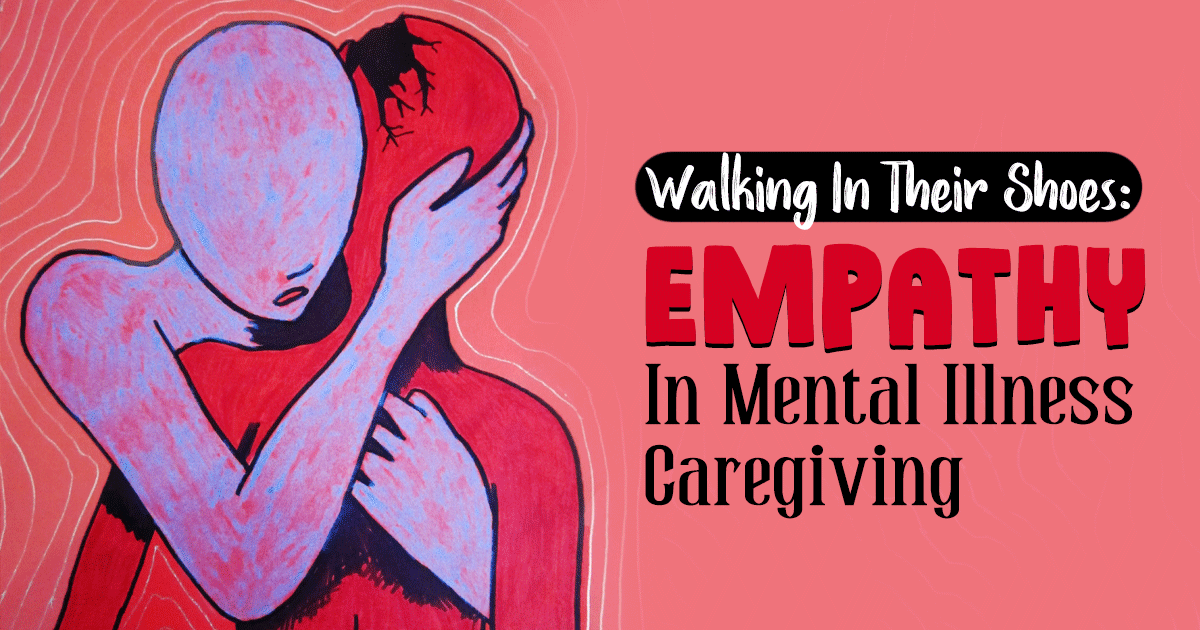Mental illnesses affect millions of individuals worldwide, making caregiving for someone with a mental illness a widespread experience. It involves providing emotional, practical, and sometimes medical support to those who are struggling with conditions like depression, anxiety, etc. Empathy in caregiving for mental illness plays a pivotal role in multiple dimensions, contributing to the effectiveness and quality of care provided.
Empathy is the profound ability to understand and share the feelings and perspectives of others, fostering a deep connection and emotional resonance with their experiences. It serves as a vital cornerstone of human connection, promoting understanding, compassion, and support in our interactions with one another.
Understanding The Lived Experience Of Mental Illness
Empathy in caregiving for mental illness allows caregivers to gain a deep understanding of the lived experience of someone with a mental illness. Mental health conditions can be isolating and challenging, and without empathy, caregivers may struggle to comprehend the inner turmoil their loved ones are going through.
Understanding the emotional pain, anxiety, and despair that often accompany mental illness is critical. It enables caregivers to offer more compassionate and effective support. When caregivers are empathetic, they can connect with the emotional aspects of the illness, which is often hidden from the external world. This understanding is essential for tailoring the care and support to the unique needs of the individual.
Moreover, empathy in caregiving for mental illness helps caregivers to validate the experiences of those with mental illnesses. It affirms that the emotional pain is real, and it is not simply a matter of “snapping out of it” or “getting over it.” This validation can be a crucial first step toward recovery.
Effective Communication In Caregiving For Someone With Mental Illness
Effective communication is a cornerstone of caregiving for someone with a mental illness, and empathy is a key ingredient in this process. Empathetic communication involves not only listening but also acknowledging and validating the person’s feelings.
When caregivers approach conversations with empathy, they create a safe and nonjudgmental space where individuals can express their emotions and thoughts without fear of criticism or dismissal. This open and empathetic dialogue can facilitate a deeper connection and trust between the caregiver and the individual receiving care.
Furthermore, empathy in caregiving for mental illness enables caregivers to interpret nonverbal cues and body language more accurately. People with mental illnesses might not always articulate their emotions or thoughts explicitly, but their body language and tone of voice often convey significant information. Caregivers who are attuned to these subtle cues can better understand the emotional state of their loved one and respond accordingly.
Reducing Stigma In Caregiving For Someone With Mental Illness
Empathy in caregiving for mental illness plays a crucial role in reducing the stigma and isolation associated with mental illness. Stigma is often perpetuated by a lack of understanding and empathy. People with mental illnesses frequently face discrimination and societal judgment, which can exacerbate their suffering.
Empathetic caregivers, on the other hand, actively work to dispel these stereotypes and prejudices. They not only understand the challenges their loved ones face but also advocate for them and educate others about mental health issues. By speaking openly and empathetically about mental illness, caregivers can contribute to reducing the stigma that often shrouds these conditions.
Additionally, empathy in caregiving for mental illness helps in reducing the isolation that individuals with mental illnesses can experience. When caregivers provide a nonjudgmental and empathetic space, it encourages open conversations about the challenges faced. This sense of connection and shared understanding can alleviate the loneliness and alienation that often accompany mental health conditions.
Fostering A Supportive And Healing Environment For Someone With Mental Illness
Empathy in caregiving for mental illness is fundamental to creating a supportive and healing environment for individuals with mental illness. This environment is not limited to physical spaces but encompasses the emotional and psychological atmosphere in which care is provided.
Empathetic caregivers foster a sense of safety, trust, and acceptance. This emotional environment is essential for individuals with mental illnesses to feel comfortable discussing their feelings and seeking help. When people feel heard and understood, they are more likely to engage in treatment and follow through with their care plans.
Empathy in caregiving for mental illness also contributes to creating a therapeutic alliance between the caregiver and the individual receiving care. This therapeutic alliance is crucial for the success of any mental health intervention. It enhances treatment adherence, symptom management, and overall well-being.
Preventing Caregiver Burnout In Mental Healthcare
Caring for someone with a mental illness can be emotionally and physically taxing. Caregivers may experience stress, anxiety, and even depression themselves. Empathy can serve as a protective factor against caregiver burnout.
Empathetic caregivers not only connect with their loved ones on an emotional level but also engage in self-care. They recognize the importance of maintaining their own well-being, both for their sake and for the person they are caring for. Self-empathy is crucial for caregivers to acknowledge their own needs and seek support when required.
Furthermore, empathetic caregivers are more likely to access their own support networks, such as support groups or counseling. These resources can provide guidance, understanding, and coping strategies for caregivers to manage the emotional toll of caregiving effectively.










